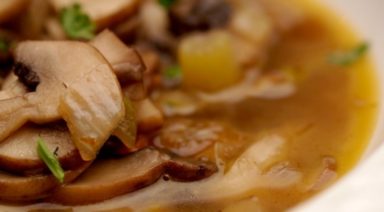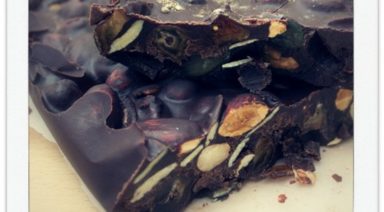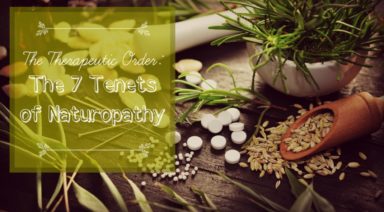Herbs and Tinctures That Heal Inflammation

Inflammation can begin as a benign condition and slowly turn into a nightmare. It might start with stiffness and strains in the muscles and bones and later develop into pain and agony. It might only occur on occasion, or it can be constant and dreadful. Some describe inflammation as nagging and uncomfortable, while others say they experience steady stabs and pinches throughout their waking day. It all depends on the intensity and severity of the inflammation.
Inflammation can emerge and cause damage to our bodies and lives, even when it’s not overt. It might appear as fatigue, chest pain, stomach pain, mouth sores, disorientation, fever, rash, or joint pain. Down the line, if inflammation isn’t healed, it can feed or cause a variety of diseases, including arthritis, some cancers, atherosclerosis, periodontitis, and hay fever.
You might have one of these chronic conditions, which often include inflammation: asthma, ulcers, tuberculosis, Crohn’s Disease, hepatitis, bronchitis, infected skin and nails, sore throats, mouth sores, scratches and cuts, intense exercise, sinusitis, or physical trauma.
“Reduce inflammation to treat the root of many issues. If your gut isn’t working right it can cause so many other issues.”
― Jay Woodman
Watch this full-length video with Ayurvedic recipes for balancing the body
All the science now points to naturopathic and herbal treatments for inflammation and arthritis. In this article, you’ll find helpful lists of the most successful treatments to ease your pain around inflammation, joints, and their related conditions.
“Inflammation is the cornerstone of Alzheimer’s disease and Parkinson’s, multiple sclerosis – all of the neurodegenerative diseases are really predicated on inflammation.”
— David Perlmutter
Western Medicine Helpful To Relieving Inflammation And Arthritis
For 200 years, Western medical practices have often worked against the body, sometimes having little effect, or creating more problems than they’ve healed. Luckily, times are changing, and Western medicine is much more inclusive of the ancient traditions found in tribal, herbal, and naturopathic remedies and treatments.
While these Western medical treatments might not be helpful for you specifically, they have helped millions of people around the world reduce the effects of inflammation and arthritis:
- Non-steroidal anti-inflammatory drugs (NSAIDs) can help ease the pain associated with inflammation and provide arthritis relief. NSAIDs like naproxen, ibuprofen, and aspirin might be helpful in the short-term, but they can cause dangerous changes in the immune system and contribute to stomach ulcers. They might also cause kidney damage, increased risk of strokes and heart attacks, and turn low-level asthma into life-threatening conditions.
- Corticosteroids (Glucocorticoids and Mineralocorticoids) promise to prevent several aspects of inflammation and replace depleted hormones. However, these medications can also cause long-term problems, including high blood pressure, deficient potassium levels, and more.
- Hyaluronic acid creams and injections can help reduce the symptoms of inflammation and arthritis, mainly when applied to the knees.
Because every person’s condition and its related origin is unique, you might not find the “Best Anti-Inflammatory” or the ultimate tincture for arthritis pain relief. But if you’re willing to do a little research, you’ll most certainly find that some of the most potent anti-inflammatories come from herbs and natural remedies.
Science is now learning that the most successful and potent treatments for inflammation and arthritis come directly from the Earth, raw and untainted.
Review the following lists and consider taking the herbs that feel best to you.
Natural Anti-Inflammatory Herbs And Remedies For Arthritis
Some natural remedies for inflammation have become very popular in the United States and Europe. Many of them were originally found in Ayurvedic medicine.
When taken thoughtfully, these herbs can produce wonderful results when applied to the healing of inflammation.
- Boswellia (Salai guggul, Frankincense)
- Bromelain
- Hyssop
- White Willow Bark (contains salicin, a chemical similar to aspirin (acetylsalicylic acid)
- Devil’s Claw (Harpagophytum procumbens, Wood Spider, Grapple Plant)
- Ginkgo (Maidenhair tree)
- Nettle (Stinging Nettle, Urtica dioica)
- Myrrh
- Resveratrol
- Maritime Pine Bark
- Chili Peppers (Capsaicin)
- Cat’s Claw (Uncaria tomentosa)
- Turmeric (Curcumin)
- Green Tea (an excellent anti-inflammatory tea)
- Cardamom, Cumin, Clove
- Rosemary
- Cinnamon
- Ginger
- Thyme
- Cannabis (this is not for everyone, and it’s not for every condition)
- Honeysuckle
Additional Ayurvedic Anti-Inflammatory Herbs
Ayurvedic Medicine is over 6000 years old and has been traced to ancient masters like Babaji. Ayurveda seeks to help the body, mind, and heart find peace and balance.
Here are a few powerful, healing herbs that are often promoted by Ayurvedic practitioners.
- Amalaki
- Triphala
- Mulethi (Licorice Root)
- Manjistha
- Arjuna
- Gotu Kola
- Shatavari
Chinese Anti-Inflammatory Herbs and Arthritis Remedies
Chinese medicine has one of the most complex and intricate systems of healing the mind, heart, and body. Focused on reducing heat in the body and creating flow, Chinese herbs for inflammation and related treatments date back at least 2500 years, with many of its original teachings still in practice today.
Chinese medicine addresses the ebbs and flows of our energies, consciousness, and physical forms. When taking Chinese herbs, be cautious and sensible. Some herbs, when taken too aggressively, can cause more harm than good.
Here are a few of the most successful and scientifically proven Chinese herbs that help to heal inflammation:
- Huáng Qín (黃芩 Scutellaria baicalensis)
- Huáng Lián (黃連 Coptis chinensis, Coptis root)
- Jīn Yín Hūa (金銀花 Flos Lonicerae)
- Léi Gōng Téng (雷公藤 Tripterygium wilfordii, *Thunder God Vine)
- Lián Qiào (連翹 Forsythia suspensa)
- Dà Qīn Yè (大青葉 Isatidis Folium )
- Yú Xīng Cǎo (魚腥草 Houttuynia cordata)
- Bǎn Lán Gēn (板藍根 Radix Isatidis)
- Zǐ Huā Dì Dīn (紫花地丁 Viola yedoensis )
- Bái Tóu Wēn (白頭翁 Pulsatilla Radix)
- Chuān Xīn Lián (穿心蓮 Andrographis paniculata)

TCM herbal formula known as “Ge Geng Tang.”
“Joint pain, bloating and foggy thoughts are not imagined symptoms, They’re the result of improper diet. Make eliminations. Start with wheat, then dairy, then sugar. These are the most inflammatory foods.”
― Nancy S. Mure
Home Remedies For Arthritis
Finding the source of our discomfort can be difficult. As you search for the tools and treatments that serve you best, consider adding these ideas to your regiment. All of these are recommended by Chinese, Ayurvedic, and Western doctors throughout the world:
- Hot and cold compresses
- Swim and Exercise
- Lose weight
- Panchakarma (Ayurvedic cleansing program)
- Yoga, Tai Chi or Qigong
- Chondroitin and Glucosamine
- Nerve stimulation
- Acupuncture
- Massage
- Meditation
- Add more omega-3 fatty acids and vitamin D to your diet
- Add the following foods to your diet: olive oil, tomatoes, nuts, spinach, kale, wild salmon, blueberries, oranges, and beets.
- Avoid fast foods and processed meats, including red meat, fried chicken, french fries, flour, soda, sugar, dairy, and unnatural fats like margarine.
Summary
Finding the sources of your inflammation can be a daunting task. All of the suggestions in this article might also feel a little overwhelming. One tip might be to start slowly and select your favorite ideas from the above lists.
You might begin by adding a few healthier foods to your diet. Soon after, you might add one or two medicinal herbs. If you want a deep-dive into healing your inflammation, make notes on how each set of herbs and foods makes you feel. Consider implementing a 90-day program where you try three small subsets of herbs, each for 30 days.
The simplest things you can do to improve your health and inflammation are to regularly exercise, visit with your doctor twice a year, and continually improve-upon your diet. You might consider rotating groups of foods in your daily meals so that you can give your body exposure to a wide variety of nutrients.
In all things, keep calm, pray, and remain positive. Miracles await!
What Your Food Cravings Really Mean

Ever had a craving you just can’t shake? Is there only one particular food that can always pull you out of an emotional rut? Have you ever wondered where the phrase“Eat your feelings” even comes from or what causes food cravings in the first place?
Of course, you have! You’re only human! Most people accept food cravings as a normal part of everyday life without really ever asking what these food cravings mean.” No two bodies are the same, and therefore no two reasons behind a specific food craving are the same. While some may be rooted in nutritional deficits – others may be a deeper signal from our Spirit echoing throughout our bodies.
Your mind, body, and Spirit communicate through an intricate language, which isn’t always easy to decipher. However, with a little effort, you can translate these signals and create the harmony needed for improved health.
For most, we’ve been taught to “overcome” our bodily cues with medicine or supplements. For example, when a person has a headache, they’re taught to reach for the Advil bottle rather than lying down and drinking lots of water. However, no matter how much you resent, ignore, or overlook your bodily cues – they’re not going to go away.
When looking at a type of food craving specifically, emotions are one of the most common causes of binge eating. Cravings that cause emotional eating tend to manifest themselves when we feel vulnerable. Rather than expressing fluctuations in our emotions, we tend to stuff them down with “comfort foods” that give our bodies a false sense of fulfillment. After a while, your body learns this routine, creating cravings that, when satiated, provide a short-term boost of chemical components. By deciphering the real meaning of your cravings, you can get insight as to what’s truly gnawing at you from within.
Gaining knowledge about what our cravings can mean, whether through personal research or consulting with a dietitian, may help us to reduce unhealthy habits and poor food choices that may lead to undesirable outcomes like weight gain and obesity. The following are the three most common food cravings and a starting point for you to decrypt what your mind, body, and Spirit are trying to tell you.





































